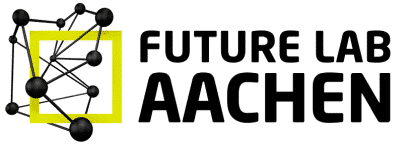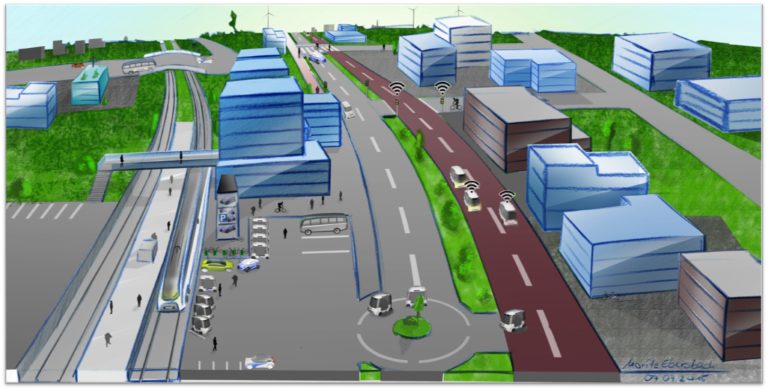In what the project partners have named “Erlebniswelt Mobilität Aachen”(Mobility Theme Park Aachen), road users will help researchers and automobile developers in their work..
CAUTION! TESTING GROUND! – But wait a moment … what do they mean by “testing ground”? Campus Boulevard is, after all, a public thoroughfare – not a laboratory!
But that’s exactly what it will soon become: a “living lab” in the middle of Melaten, where everyday road users will encounter a driverless bus that gives way politely and stops at zebra crossings to let pedestrians cross the road. Because the bus is intelligent, it can learn from other road users. And that’s exactly the idea.
Driverless cars have long become an everyday phenomenon in Silicon Valley, but in Europe they are still often greeted with scepticism. This needs to change, and Aachen intends to lead the way – with the project “Erlebniswelt Mobilität Aachen”, jointly initiated by the City of Aachen, the companies e.GO Mobile AG, Lumileds, Ericsson and FEV Europe GmbH, along with the Chair of Production Engineering of E-Mobility Components (PEM) of the RWTH Aachen and Aachen’s bus company ASEAG.
The planned test circuit for autonomous driving on Campus Boulevard will be the nucleus of this upcoming “living lab” in public space. In the long term, the testing ground will expand to include residential areas. The aim is clear: to test new forms of mobility in a real-world complete system – with the collaboration of Aachen residents.
Pop-up stores and demo drives for all
For the project partners, the main focus is on active participation. Future participants in intelligent road traffic are to be directly involved in the development process. The first encounter between humans and new technology is always a highly critical moment. All road users – humans and machines – need to familiarise themselves with each other gradually; fears and concerns need to be allayed. The so-called “Oecher Lab” is a crucial part of the project concept, which, in addition to practical testing, also envisages an ongoing dialogue and events for specific target groups. Plans have been made for the project’s own event calendar, pop-up stores and demo drives. Because Aachen’s residents are the future users of the technology, their feedback will be of special value.
The plan is to have a driverless bus test-cruising along Campus Boulevard within the next two years. And passenger vehicles will also be driving themselves, for example in the “Valet Parking” project, where clever cars will search for – and find – a parking space in the car park, all on their own. While they are doing this, their human drivers can already be well on the way up to the office. The system promises to provide more safety, save time and enable highly efficient use of space.
Tip: look for regular updates and opportunities to voice your opinions under the hashtags #händefrei and #oecherscience.



